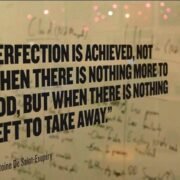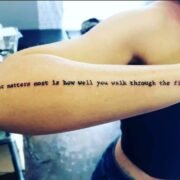MBA Interview questions with sample answers
MBA Interview questions with sample answers
Here are some common MBA interview questions and sample answers:
1. Can you tell me more about yourself?
Applicants who prepare a statement usually have an easier time answering this question. Craft your answer to highlight your abilities to succeed in their program. Keep your answer compact and relevant to why you are the perfect candidate for the program. For good measure, keep your response to about two-to-three minutes long and consider keeping your earlier experiences compact while expanding on your most recent experiences and abilities.
Example: “I’ve always inspired myself to reach my goals because my vision is important to me. I’ve completed the education that was required of me and used every piece of knowledge in my job. However, I’m ready to develop my career and obtain the job I’ve always wanted. I’ve worked incredibly hard to get to where I am today and plan to achieve my goals of completing this program.
My education definitely prepared me for my first job out of college, but I want to aspire to do more in my life. My current education can only take me so far, and I’m ready to learn the skills and gain the knowledge in this program to have the opportunity to work in a better position at my dream company.”
2. Can you tell me about a time when you worked closely with someone who had a different personality than you?
This question allows you to show how well you work with others. Using the STAR method can help you craft a well-constructed answer that demonstrates your ability to adapt to a variety of personalities. Think about one or two situations when you worked with people with differing personalities, and practice your response until you can effortlessly recite the situation.
Example: “I worked with someone on multiple projects during my most recent job, and he liked to work quickly from the start and fix errors later. However, I like to work after formulating a plan. The first two projects involved fixing mistakes and spending more time than was necessary, so I explained my thought about creating a plan from the start. Although he still wanted to get working immediately, the following project took us less time because we were able to complete the tasks correctly the first time. I formulated a plan for every project after that because of our increase in productivity.”
3. What has been your most challenging academic experience so far?
While talking about challenges can have the opportunity to display your weaknesses, you can use this question as an opportunity to show how you overcame a challenging experience. Think about instances when you were relieved to have gotten past academic obstacles and explain how you managed to overcome the challenge.
Example: “I had a speech class where I was assigned to write and deliver a speech that spoke about an issue that went against my view. It was certainly challenging to be able to speak against what I believed, but I spent a lot of time researching the other side of the argument and developed a speech that received a passing grade. It was more important to me to pass the class than it was to deliver a speech that went outside of the requirements.”
4. Describe a time when you failed to meet someone’s expectations. How did you resolve the situation?
This question gives you the chance to speak about a difficult challenge. Everyone has shortcomings in their lives, and the interviewer wants to know about how you turned the negative event into a learning opportunity. Besides learning from your mistake, you can also show the interviewer your conflict resolution skills by explaining your resolution to the situation.
Example: “I had a teacher who expected the best from all of her students. During a time when I had a lot of projects due at once, I was unable to show my best work on the project for her class. She was disappointed that my work had faltered compared to my previous work in her class. Although there were no redos for the assignment that would change my grade, I turned in the assignment again when my workload had diminished to show her that I knew what she expected of me.”
5. How would you take advantage of the resources we provide?
This question gives you the chance to show the interviewer what you know about their business administration program and how you plan to use your knowledge and skills to develop your career. MBA program departments appreciate when their students succeed because it is a direct reflection of their program’s success. Show the interviewer what you know about their program and why it will help.
Example: “I researched many schools before deciding to apply here. Your program fits exactly what I’m looking for, and I’m going to utilize every resource you have. The coursework you offer is everything I want from a business school, and your career management offerings will help me develop my career and achieve my dream job.”
6. What other schools or programs are you applying to?
The admissions representative might ask this question to find out what your process for school or program selections consists of. While schools like it when you only apply for their program, you might have applied to numerous programs. Make it clear why the program you are interviewing for is your top choice and explain what qualities you considered when making this program your number one choice.
Example: “I’ve applied to the schools that offered the most competitive programs that would be most beneficial to my career. The reason your program is at the top of my list is because of the coursework, the instructors and the history of success with your program.”
7. What do you hope to achieve with an MBA?
This interview question is a great time to discuss how an MBA could change or advance your career options. Be sure to be specific about how this program might better prepare you for upcoming work challenges/opportunities or how it can help propel you into a new market as a job switcher.
If the particular program offers great partnerships with the sector/industry you’re looking to pivot into, be sure to elaborate on that aspect. If the program can offer you a broader understanding of your current role and help solidify your experience, make it known that you plan to use the program for this.
Example: “I have put a lot of thought into the process of pursuing my MBA and I do not take the process lightly. I am looking to continue to broaden my scope of work in x,y,z ways. With a degree from your program, I believe I could make the next step in my career or life endeavors.”
8. What do you like most about your current work?
Take this question as an opportunity to direct the conversation toward something you’re truly passionate about. Give reasons why you love your job and why you chose your current career path. If there are aspects that you specifically find rewarding in your current work, highlight those. Even if you’re looking to change careers through an MBA, you should be able to capture reasons why you feel you are successful in your current role. This can also show how you see positivity in a negative situation.
Example: “What I love about my current work is that it allows me to be innovative in many ways. Specifically, it gives me the ability to be creative through these ways: (include specific examples).”
9. What do you believe would be your biggest challenge in this program?
This interview question gives you the opportunity to explain that you’re aware of the demands of an MBA program and that confidently feel ready to tackle those demands. Use this question as an opportunity to show vulnerability and how it can work to your advantage. Demonstrate that you are aware of the upcoming potential obstacles and therefore, better positioned to overcome them.
Be candid, explain how you’ll address the challenge, and show that you’re thinking about how to manage your time and resources wisely. Include examples of how you might utilize this particular program’s resources with clubs, study groups, etc.
Example: “I understand the complexities of taking on a program such as yours. I can honestly say that I feel up to the challenge but know that utilizing resources available to me will give me the best opportunity for success. I plan to take my time management seriously and pace myself throughout the program.”
10. Do you have any questions for me?
This question is basically a guarantee, so be sure to do your research and come up with four to five questions you’re willing to ask in your interview. Be sure to put serious thought into what questions you’d like to ask and be succinct in your delivery leaving no room for misinterpretation showing that you’d done your homework.
MBA Interview questions with sample answers
Examples:
In your opinion, what sets this MBA program apart from others?
What current challenges do you see that have developed for this program?
Do you see any major changes to the program in the near future?
How does your program work to develop and maintain relationships with recruiting partners? What types of industries hire out of your program?
Given what you now know of my goals, what would you say are your program’s biggest advantages to me?
How to Prepare for your behavioral interview questions
Focus on the positive. Recall recent situations that show your favorable behaviors, involving course work, work experience, leadership, teamwork, initiative, planning and customer service.
Give each story a beginning, middle and end. Be ready to describe situations including the task at hand, your actions, and the outcomes and results.
Be honest. Don’t embellish or leave out parts of your story/answers.
Be specific. Don’t generalize several events. Instead, give detailed accounts of core events or examples.
Vary your examples. Don’t take all examples from just one area of your life.
Prepare questions. Conduct research before the interview and prepare questions specific to each school you are applying to for an MBA program.
Use the STAR method. The STAR method is a structured interview response technique that can help you answer behavioral-based questions effectively. This answering method works when you are asked about the actions you took in past situations.Situation: Explain the context of the situation you experienced or challenge that you faced. Do not use a generalized description of what you have done in the past; be sure to include enough detail and be as specific as possible.
Task: Describe your role or responsibility in the situation. What goal were you working towards?
Action: Explain the direct actions you took to manage the situation or overcome the challenge. Be sure to keep the focus on you and the specific steps you took and your particular contribution.
Result: Describe the outcome that was reached because of your action and don’t be shy about taking credit for your behavior. How did the event end? What did you accomplish? What did you learn? Be sure to answer with positive results.
Pro Tip: Make sure you follow all parts of the STAR method. Be as specific as possible at all times, without straying off-topic or including too much information. The result portion of the STAR method is often forgotten. Be sure to include this without being prompted by your interviewer.
MBA Interview questions with sample answers







